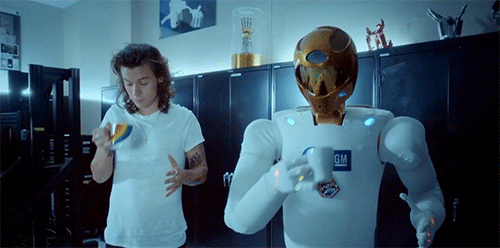The fear of automation causing widespread technological unemployment is probably only founded if the future arrives far faster now than it did in the past. That’s possible, given the current push on many fronts in AI. Driverless being perfected and instituted in rapid fashion means farewell to eight million or so jobs in trucking alone, not to mention taxis, limos, delivery, etc. Is it a disaster for Labor if it happens in two decades but not in four? The flip side is that it would probably be a body blow to the economy if such things happened too slowly or not at all. Innovation plus nimble policy is probably the only answer, but not an easy one in our jagged political landscape.
From Andrea Korte at the American Association for the Advancement for Science:
Artificial intelligence experts predict that intelligent and semi-intelligent autonomous systems — such as self-driving cars and autonomous drones — “will march into our society” in the next two to three years, with driving expected to be fully automated in 25 years, a panel of experts said at a 13 February news briefing at the 2016 AAAS Annual Meeting.
“For the first time, we’re going to see these machines and systems as part of our everyday life,” said Bart Selman, professor of computer science at Cornell University, citing big changes in the AI field that have spurred a shift toward real-world applications in the last five years, including the ability of computers to see and hear as humans do and to synthesize data and fill in strategies for achieving their programmers’ high-level goals.
With more than a billion dollars spent last year on AI research — more than in the field’s entire history — the experts agreed that AI advances may threaten jobs and uncover a range of legal, regulatory, and ethical issues.
The widespread use of self-driving cars, for instance, is likely to bring about a reduction in car accidents; liability debates as courts determine whether a computer can be held at fault in an accident; and a serious effect on the labor market.
With 10% of U.S. jobs involving the operation of a vehicle, “we can expect the majority of these jobs will simply disappear,” said Moshe Vardi, professor of computer science and director of the Ken Kennedy Institute for Information Technology at Rice University.
…
Vardi expects that the growing presence of intelligent machines in the workforce will contribute to a phenomenon called “job polarization.” With many high-skilled jobs requiring too much human intelligence and many low-skilled jobs too expensive to automate, those jobs in the middle will be easiest to automate. The disappearance of these jobs will spur “great inequality,” but even in a U.S. presidential election year, the issue is “nowhere on the radar screen,” Vardi said.•

